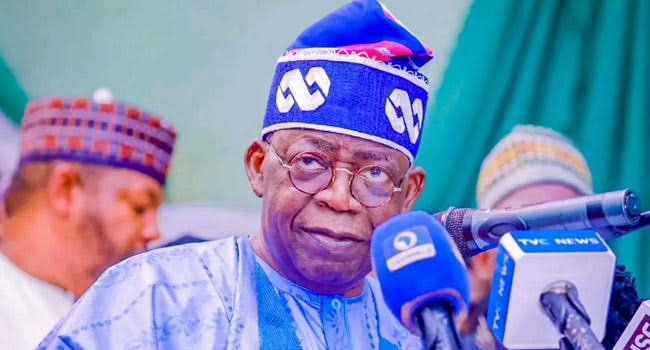Uyai-Abasi Etido
Financial Experts in Nigeria have articulated an agenda for the president-elect, Bola Ahmed Tinubu.
According to report, elimination of petrol subsidy and multiple exchange rate system, as well as execution of a fiscal reforms including elimination of multiple taxation are one of the most sacrosanct amongst the issues they consider pressing in the economy at large and the financial sector in particular.
Others recommendations are privatisation of non-performing public enterprises, securitization of the Ways and Means, adoption of Public-Private Partnership, PPP, model for infrastructure development.
The Head of Equity Research, an arm of the First Bank Group, Tunde Abioye, stated: “Some of the things we expect from the incoming administration include Fiscal reforms – to implement fiscal reforms aimed at expanding the fiscal space. Such reforms must include the elimination of fuel subsidies which are estimated to have gulped close to N7 Trillion in 2022. This would reduce the FG’s expenditure profile, and free up revenue for investment in other sectors such as education and health.
“However, as we mentioned in our outlook report, the decision is likely to prove unpopular with a variety of stakeholders, including labour unions. The government will have to improve transparency around the savings from subsidies, as well as its communication and engagement with all stakeholders.
“Tax reforms – carry out tax reforms aimed at expanding the tax base, increasing collection efficiency, and plugging collection/ revenue leakages.
“Monetary/exchange rate reforms which entail working with the CBN to achieve convergence of the multiple exchange rate regimes into a single market clearing rate. I see this rate at close to or around NGN600 per dollar. This will help expand the fiscal space for all tiers of government because the upwardly revised exchange rate will translate to more naira revenue for the FG, states, and local governments.
“The incoming government should fast-track the securitization of the ways and means obtained from the CBN by actively collaborating with the national assembly. Doing this will reduce the current debt service burden. Already proposals are in place to securitize the loans at 9%. This compares with the current interest rate of MPR + 3%.
“The incoming government should privatise non-performing state-owned assets of the FG. This will raise additional revenue for the FG to fund its budget deficits.
“The government should build on the existing PPP models such as the Road Infrastructure Tax Credit (RITC) Scheme to address the infrastructure gap.
“The incoming government should improve on the work done by the out-going administration on the ease of doing business. This should entail a closer look at elements such as the existing taxes with the aim of harmonizing the multiple tax regimes, and a more prudent approach to granting incentives, waivers and concessions.
“There should be Incentive schemes for non-oil exports: the incoming administration should work with the CBN to strengthen already existing schemes to stimulate non-oil exports. Presently, non-oil exports account for a paltry 10% to 11% of merchandise exports. Also, Nigeria’s export of services is almost non-existent. Consequently, we need to develop a vibrant services sector for exports.”

